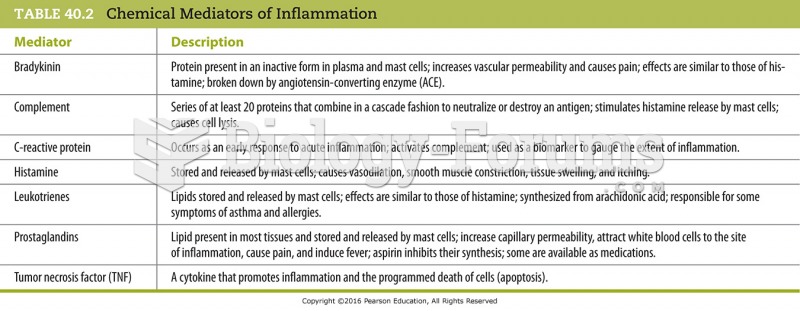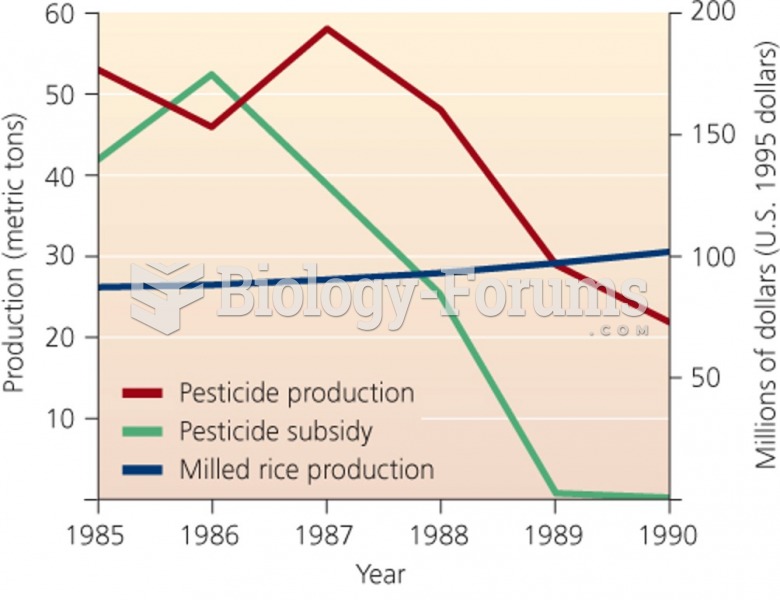|
|
|
Children of people with alcoholism are more inclined to drink alcohol or use hard drugs. In fact, they are 400 times more likely to use hard drugs than those who do not have a family history of alcohol addiction.
Medication errors are three times higher among children and infants than with adults.
About 80% of major fungal systemic infections are due to Candida albicans. Another form, Candida peritonitis, occurs most often in postoperative patients. A rare disease, Candida meningitis, may follow leukemia, kidney transplant, other immunosuppressed factors, or when suffering from Candida septicemia.
The first oncogene was discovered in 1970 and was termed SRC (pronounced "SARK").
The people with the highest levels of LDL are Mexican American males and non-Hispanic black females.







